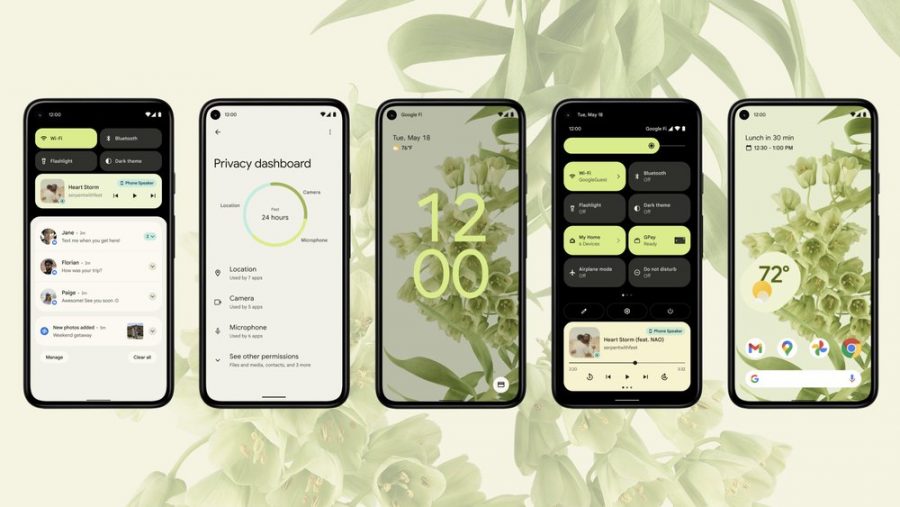By — Danny Kistner
Google just released the developer preview, and consequently the first beta to the up and coming Android 12 operating system. The tech giant has called the update one of the biggest UI overalls in years, and this can very obviously be seen with the companies bold approach to its animation, button, control center, and overall design within its Pixel phones.
I say Pixel, of course, because there’s no way of telling when or how this update will be carried out with other Android phones, a problem made more curious by the company’s focus on this year’s rebrand. Indeed, Google is calling its most important, and new feature, Material You. This brings another level of personalization to the phone, focussing on color schemes that match to wallpapers and a much needed update to many of Android home widgets.
The update is less a total redesign, of course, it still remains familiar to use, but what has changed is the consistency within the operating system; Google has essentially cleaned up what had been some very messy UI and is trying to include developers as they continue this process. Not only this, but the team at Google has worked to create a far smoother looking system, removing the need for an extremely fast refresh rate or high amounts of RAM. Indeed, there is a completely new quality about animations and scrolling, that add to the bubbly new UI and design Google is going for overall.
As with every year, quick settings received yet another refresh, Google making the buttons bigger while also adding in the wallet and smart home controls in the upper panel. They’ve added camera and microphone access in the quick settings as well, another effort to improve privacy within Android. Similar protections are being added to location tracking, as well, Google making it more difficult for other companies to have access to your current and personal data. Like with iPhone, the Pixels now have an indication of access in the top right corner of the screen.
There are, of course, a mass amount of other features being introduced, however this and more are bound to be improved upon before the first public versions become available to use later this year.






